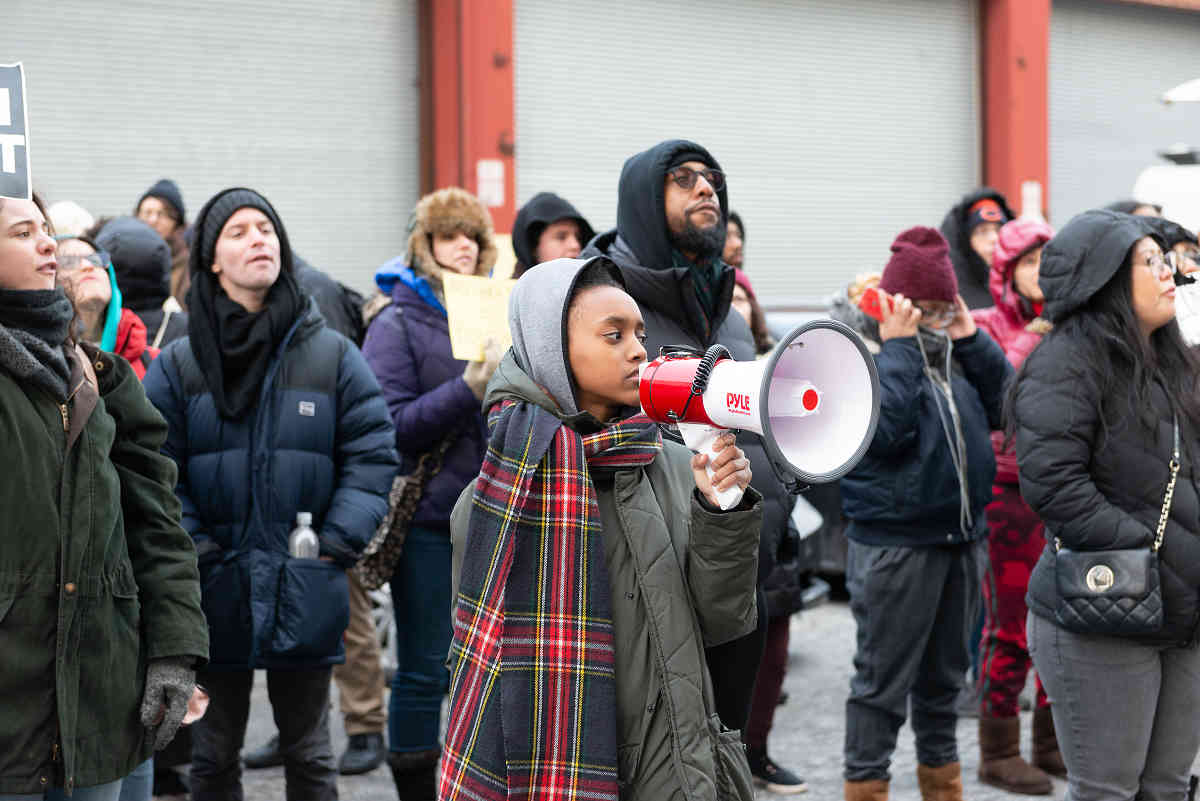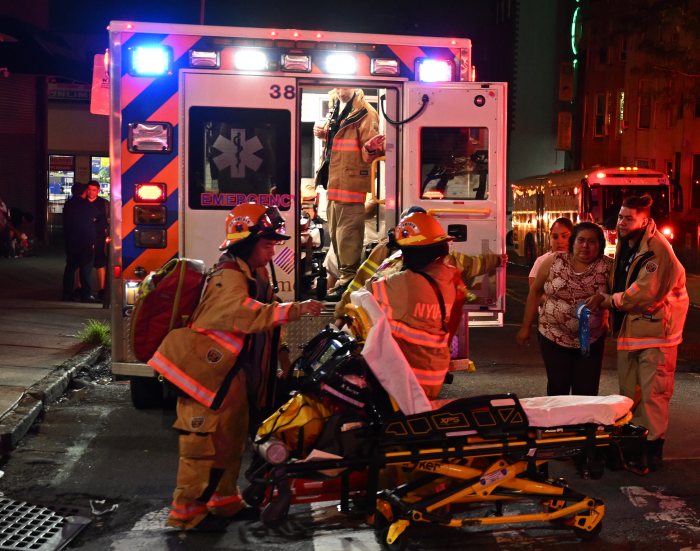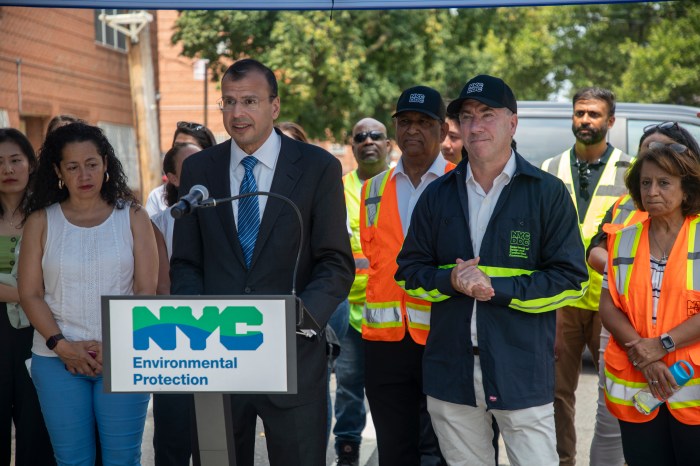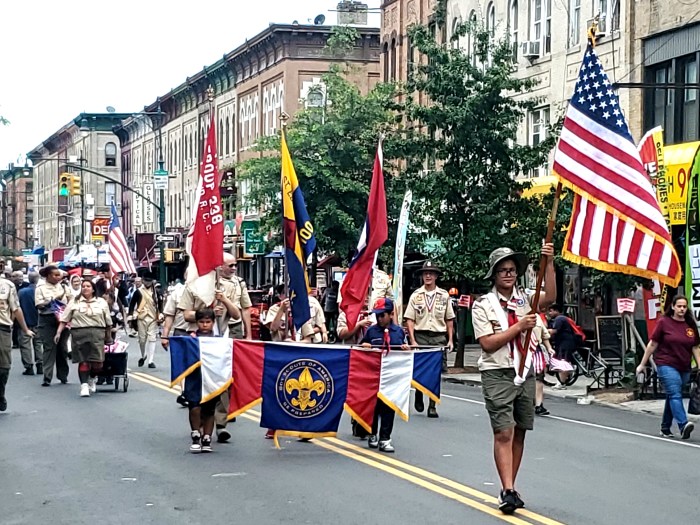Officials at a federal Sunset Park prison violated the constitutional rights of more than 1,600 incarcerated men by forcing the inmates to endure freezing temperatures, and barring them from speaking with their lawyers, during a week-long power outage, according to a new lawsuit.
Attorneys with the Federal Defenders of New York — an independent group that defends vulnerable people accused of federal crimes — on Monday filed the suit against Feds with the Bureau of Prisons, which operates the Metropolitan Detention Center, and its warden, Herman Quay.
The suit claims conditions inside the prison are “inhumane,” and alleges that Quay and other brass at the 29th Street jail between Second and Third avenues did not move fast enough to restore heat and power after a Jan. 27 electrical fire that caused “wide-ranging power outages” resulting in “little to no heating” inside the building during some of the borough’s coldest days on record, when temperatures plunged to below 10 degrees Farenheit.
“There is a humanitarian crisis taking place at the main federal detention facility in this district,” the lawsuit reads. “They have been slow to acknowledge the problem and have not taken sufficient steps to obtain temporary supplies of electricity or heat, or to repair the damage.”
Following the fire, prison officials also cancelled legal and social visits until Feb. 4 without adequate explanations, according to the suit, which claims that Quay said the heat had “never been impacted” hours before the Federal Defenders’s attorney-in-chief visited the facility and found the inmates “wearing only short-sleeved shirts and light cotton pants” while prison staffers sported “multiple layers and scarves around their heads.”
Inmates also had no access to medical care, clean clothing, or hot food during the week-long outage, according to the suit and local pols who visited the facility amid the incident, including Councilman Jumaane Williams (D–Flatbush) and Rep. Jerrold Nadler (D–Red Hook).
The Federal Defenders filed its lawsuit in the wake of several protests at the prison after the New York Times first reported on the conditions inside it on Feb. 1.
Protesters, who included several local pols, communicated with inmates via signs and chants during the Feb. 2 and 3 rallies, and some attendees tried to force their way into the jail, only to be fended off by corrections officers shooting pepper spray,
the Times reported.
Prisons Bureau officials are now investigating the pepper-spray reports, according to an agency rep, who confirmed power was restored at the prison on Feb. 3, and claimed its heat “was operational despite the electrical outage.”

But the rep did not respond to repeated inquiries about the bureau’s definition of “operational,” only saying its leaders are conducting a “complete and thorough review of the situation in coordination with the Department of Justice.”
The Federal Defenders’s suit against the Feds came on the same day the Metropolitan Detention Center received a bomb threat from an unknown source just before 10:30 am, the Prisons Bureau rep confirmed, suspending the facility’s normal operations until around 2 pm, with legal and social visits to the prison resuming about three hours after that, the rep said.
A small group of protesters continued their demonstrations outside the prison after it received the bomb threat, banging on pots to convey their support for inmates, and hanging signs declaring “heat now” and “MDC is criminal” on a wall opposite the facility.
And the men inside the prison communicated their misery to the crowds outside it all weekend long by banging on their cell windows, and responding to questions about their conditions after activists shouted them from bullhorns, according to a protestor.
“They were saying that it’s not safe in there, and that it’s war inside,” said Thalyha Gonzalez, who said her stepfather is serving time in the prison.
Another advocate outside the prison on Feb.4 said no person should be exposed to the depraved conditions that officials allegedly forced the inmates to endure.
“Everybody looks at them as at the bottom, but at the end of the day, they’re human beings,” said Jay Heemdowdy. “Inhumane treatment should not be a form of punishment in America.”
Later that day, Sunset Park’s congresswoman blasted the incident as a violation of the prisoners’ essential rights on a conference call organized by Councilman Carlos Menchaca (D–Sunset Park), vowing she and her colleagues in Washington, DC, will demand a federal investigation into the incident.
“It’s a blatant disregard for human rights,” said Rep. Nydia Velazquez (D–Sunset Park). “The broken criminal justice system targets low-income people and people of color for disproportionate punishment and unfair treatment.”
























